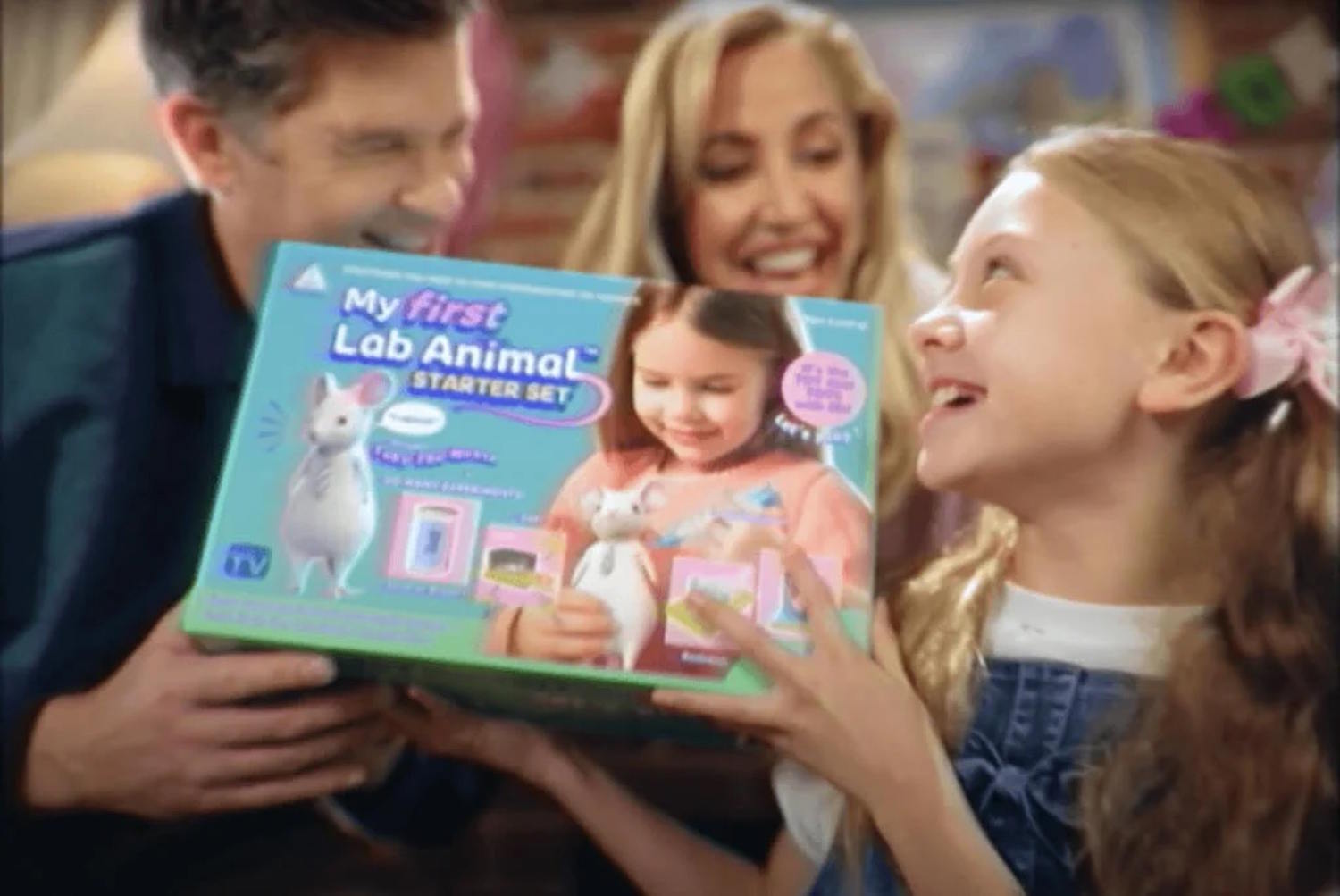As a cheerful jingle plays, “It’s the toy that plays with life!” the ad follows a little girl as she discovers the complete kit of her “first lab,” performing procedures actually funded and conducted by the National Institutes of Health (NIH) on her stuffed mouse. PETA’s new provocation

@PETA
A little girl happily gives electric shocks, injects drugs, and finally decapitates a mouse with a toy guillotine. It sounds like a twisted horror scene—but it’s actually PETA’s latest hard-hitting campaign exposing the cruelty of taxpayer-funded animal testing in the United States.
Set up like a vintage 1990s commercial, the video starts off with nostalgic vibes straight from childhood. But then the message lands like a punch to the gut. The campaign, titled “My First Laboratory Animal,” is both shocking and satirical, created to condemn the brutal experiments funded by American public money.
The toy that plays with life!
Broadcast across U.S. television, the spot features a cheerful child unboxing a fake science kit that replicates real procedures carried out on lab animals by the National Institutes of Health (NIH). From syringes to electric shocks, even drowning in a cup or execution by miniature guillotine, the toy mimics the very real horrors faced by lab animals every day.
The entire ad is presented with the sugary optimism of a kids’ toy commercial, a deliberate contrast meant to expose how desensitized society has become to violent experimentation—even when it has no solid scientific value.
The film hits hard by targeting Millennials—now parents themselves—hoping to jolt them into recognizing the absurdity and immorality of current research practices.
Highlighting the waste of public funds
Beyond the moral outrage, the ad points a finger at massive misuse of taxpayer dollars. According to PETA, nearly half of NIH’s $48 billion annual budget goes to animal-based studies. Meanwhile:
-
90% of basic research fails to translate into human treatments
-
95% of drugs tested on animals fail in human clinical trials
These numbers reveal a broken system, where horrifying and outdated tests are still routinely funded. For example, some NIH-funded studies involve separating baby monkeys from their mothers, or repeatedly shocking mice to trigger panic attacks—experiments as cruel as they are scientifically questionable.
Will this shocking message trigger real change?
With this bold campaign, PETA isn’t just speaking to animal rights advocates—they’re targeting the broader public, especially young parents, and calling for urgent reform. The goal is to push lawmakers and institutions to invest in alternative research methods that are both ethical and scientifically sound.
Whether this satirical, gut-punch of a video will be enough to shift the tide remains to be seen—but it’s already making waves.
